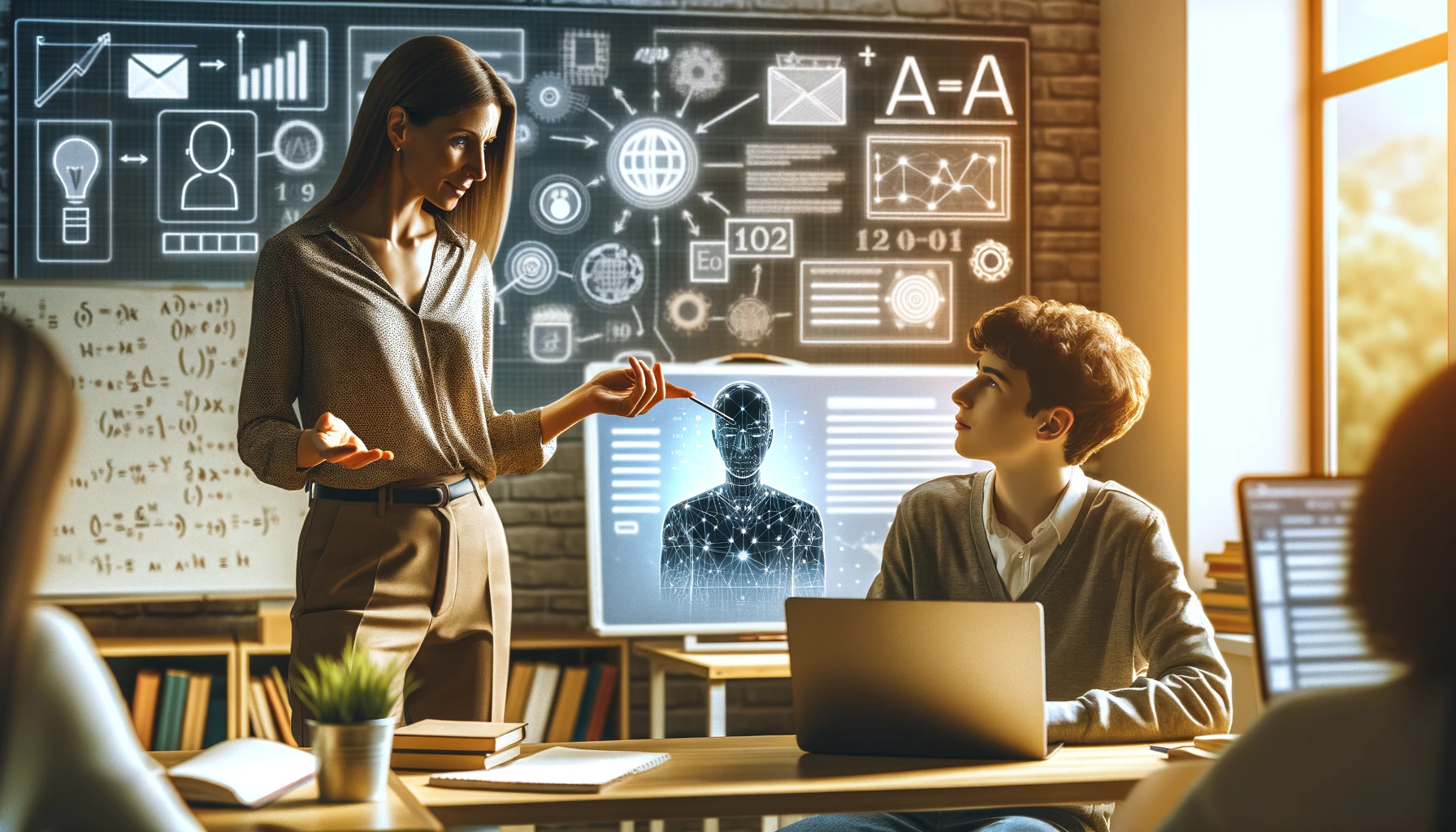EdTech Innovations Shaping Classrooms
Explore the latest educational technologies enhancing teaching and student engagement.

Artificial Intelligence (AI) is revolutionizing education, introducing a host of innovations that are transforming classrooms worldwide. One of the most significant changes is the shift toward personalized learning. With AI tools, educators can now cater to the specific needs of each student, offering tailored content and individualized learning paths. This approach ensures that every student learns at their own pace, which enhances engagement and leads to better learning outcomes. It allows teachers to move beyond the traditional, one-size-fits-all model, fostering a more dynamic and inclusive learning environment.
AI-powered platforms analyze vast amounts of data to provide insights into student performance, helping teachers identify strengths and weaknesses with remarkable precision. This capability allows educators to offer timely interventions, giving struggling students the support they need before falling too far behind. In turn, high-performing students can advance more quickly, ensuring that no one is left waiting for others to catch up. This data-driven approach not only increases efficiency but also improves overall student achievement.
One of the key areas where AI is making a significant impact is in automating administrative tasks. Teachers often spend a substantial amount of time grading papers, tracking attendance, and preparing lesson plans. AI tools are now taking over these tasks, freeing up valuable time for educators to focus on teaching and interacting with students. Automated grading systems can assess written assignments, quizzes, and even essays, providing immediate feedback to students. This quick turnaround enhances the learning process, allowing students to correct their mistakes and reinforce their understanding in real time.
AI is also enabling the creation of intelligent tutoring systems that provide students with instant help outside of classroom hours. These systems can answer questions, explain difficult concepts, and guide students through challenging material. By offering personalized support at any time, AI-driven tutors help bridge the gap between classroom learning and home study, making education more accessible and flexible. This is particularly beneficial in today’s world, where remote and hybrid learning models are becoming more common.
“AI is not just about enhancing efficiency in education; it’s about transforming the way we think about learning and teaching,” says Dr. Rachel Simmons, an education technology researcher. “With AI, we can create more engaging, adaptive, and inclusive educational experiences that meet the diverse needs of today’s learners.”
Moreover, AI is playing a crucial role in helping educators design more effective curricula. By analyzing student performance data, AI systems can identify which teaching methods and materials are most effective. This feedback loop enables continuous improvement in educational strategies, ensuring that curricula are always aligned with students' evolving needs. Teachers can use these insights to adjust lesson plans, incorporate new resources, and refine their instructional approaches, resulting in a more dynamic and responsive educational environment.
Another exciting innovation is the use of AI in virtual and augmented reality (VR/AR) applications. These immersive technologies allow students to engage with content in entirely new ways. Imagine exploring ancient civilizations in a virtual world or conducting complex scientific experiments in a simulated environment. These experiences go beyond traditional textbooks and lectures, providing hands-on, experiential learning opportunities that deepen understanding and make learning more enjoyable.
AI is also enhancing accessibility in education. For students with disabilities, AI-driven tools such as speech recognition, text-to-speech, and real-time translation services are breaking down barriers to learning. These technologies ensure that every student has access to the same educational opportunities, regardless of their physical or cognitive abilities. This commitment to inclusivity is one of the most profound ways AI is shaping the future of education, ensuring that no student is left behind.
In terms of student engagement, AI is helping teachers create more interactive and personalized learning experiences. By leveraging AI algorithms, educators can design adaptive learning pathways that adjust in real time based on student progress. This level of personalization helps keep students motivated and engaged, as they receive content that is both challenging and suited to their individual learning style. As a result, students are more likely to stay focused, retain information, and achieve their academic goals.
AI is also fostering collaboration among students and educators. Intelligent platforms can facilitate group projects by organizing tasks, tracking contributions, and providing real-time feedback. These collaborative tools promote teamwork, critical thinking, and communication skills, which are essential for success in today’s interconnected world. Moreover, AI can help create global learning communities, allowing students from different parts of the world to collaborate on projects, share ideas, and gain new perspectives.
The potential for AI to continue shaping classrooms is immense. As technology evolves, we will likely see even more advanced tools that further enhance the educational experience. From personalized learning paths to intelligent tutoring systems, AI is set to revolutionize how we teach and learn, creating a future where education is more adaptive, inclusive, and impactful than ever before.